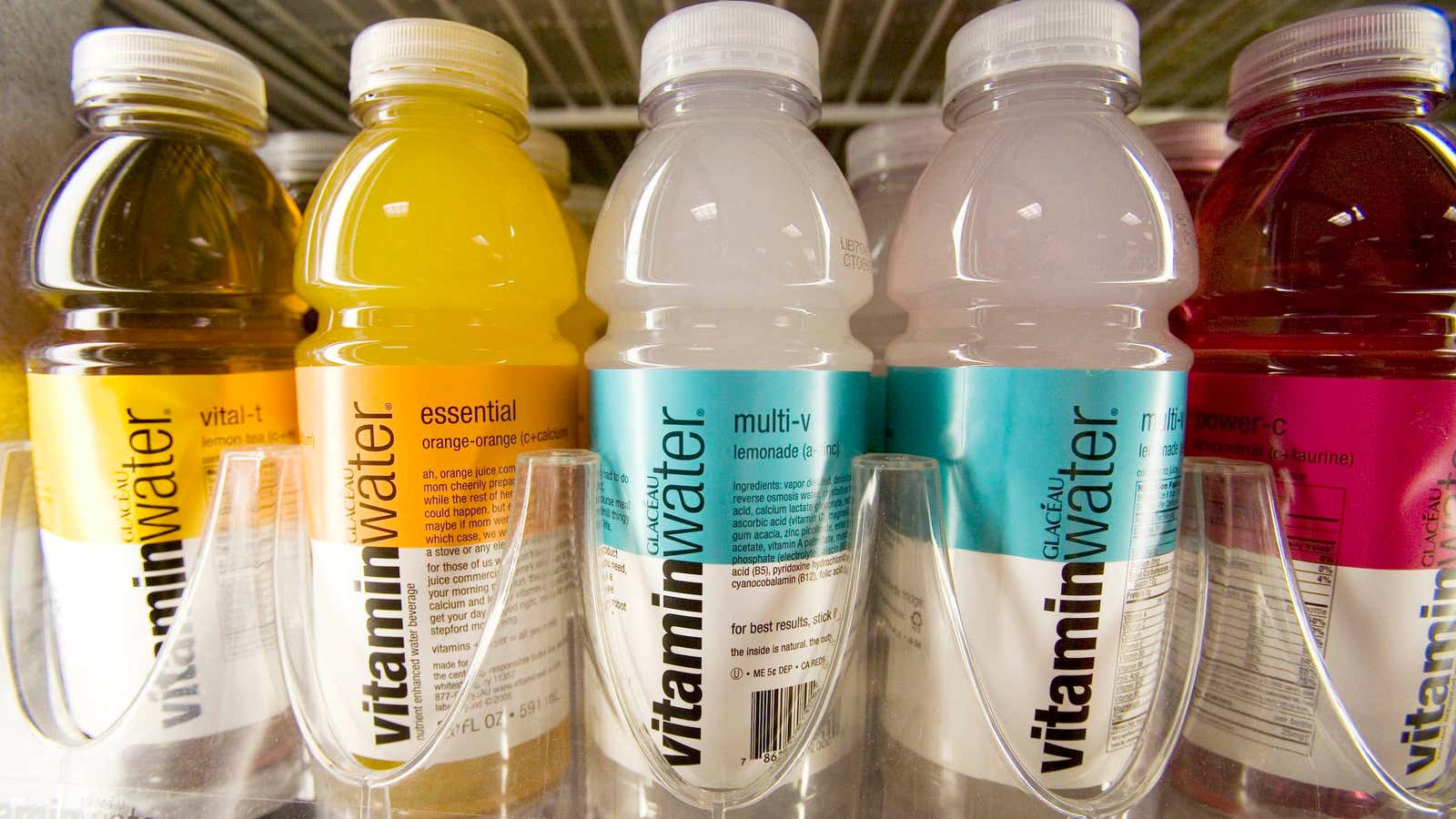“Okay! You win!” That’s Coca-Cola’s message this week to drinkers of its vitaminwater, some of whom have refused to buy the pseudo-healthy, slightly-sweetened drink since its recipe was altered in May. Full-calorie vitaminwater had until then been sweetened with a blend of cane sugar and crystalline fructose; the new formula combined cane sugar with stevia, a plant extract that’s sweeter than regular sugar but free of calories and carbohydrates. The stevia version of vitaminwater was so unpopular that the company is now taking it back: “The fans have spoken. We’re changing back to the taste you know and love,” says a corporate announcement. The fructose version should return to some shelves this fall and will be available across the US by winter, according to the announcement.
Reactions posted on the brand’s Facebook page show that consumers are happy. “Thank you for realizing your mistake,” Facebook user Adrienne Klabnik Adams wrote. ”Did you honestly taste the stevia laced product before selling it? It is yucky.”
Curiously, the stevia-sweetened vitaminwater flavors still had 120 calories, just like the original formula, and between 29 and 31 grams of sugar per bottle. The possibility that those sugars might have been healthier, somehow, than the fructose-based ones was not good enough for consumers—in the end, taste was key.
The return to crystalline fructose in vitaminwater bucks a trend in the beverage industry, where producers are responding to consumer resistance to both old-style sugar and artificial ingredients. Hence the search for an all-natural sugar substitute, and the high hopes pinned on stevia. Ironically, many vitaminwater drinkers took the change in the taste to mean stevia was artificial.
(Vitaminwater Zero, the diet version of regular vitaminwater, has always been and will still be sweetened with stevia: consumers apparently expect diet drinks to taste different.)
But the vitaminwater experience could bode ill for the eventual US debut of stevia-sweetened Coke Life, which is already on sale in Argentina and Chile and hits shelves in Great Britain this fall. It’s something between regular cola and a diet cola, but instead of offering the best of both products, it may offer the worst: enough sugar to hit waistlines, too little to satisfy taste buds.
